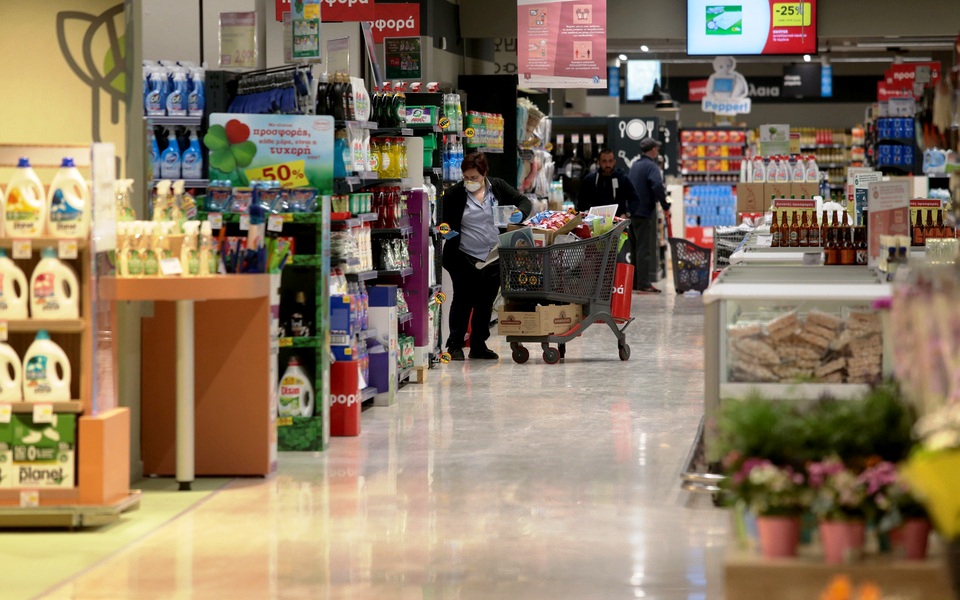VAT reductions on food products mulled
As households struggle with prices going through the roof, gov’t considers targeted moves

The Greek government is considering a surgical reduction of value-added tax on food products that make up a large part of the shopping basket of vulnerable households, while at the same time submitting a supplementary budget for 2022 to include extra spending to the tune of 2 billion euros.
Speaking to Parapolitika radio on Wednesday, Finance Minister Christos Staikouras said the measures that will be implemented will depend on the available fiscal space.
Sakikouras said the government will be in a position to renew the support measures it has already taken against skyrocketing prices or add new ones.
In any case, as long as it is decided, the measures will be strictly aimed at products that have a decisive influence on the cost of living of lower-income households, government financial staff have said.
Staikouras insisted on Wednesday, however, on the need to pursue a serious fiscal policy, as the country does not have an investment grade credit rating. He stressed that Greece must return to primary surpluses.
The reduction of VAT was also mentioned on Tuesday by Prime Minister Kyriakos Mitsotakis, but carefully, describing it as a “measure in the quiver” of the government.
While the measures are indeed being considered, there are also reservations stemming from whether it can be ensured that the reduction will be passed on to consumers. There are also reservations about the high cost of the measure in terms of budget revenue.
Although the widening of the budget deficit may be considered a given, Staikouras said that it will not be equal to the increase of expenditures by 2 billion euros – i.e. it will not exceed 1% of GDP, against a primary deficit target of 1.4% of GDP.
Kathimerini understands that initial estimates indicate that the primary deficit will not exceed 2% of GDP.
This is because the burden will be mitigated by the better-than-expected budgetary performance in the first two months of the year along with the positive effect that last year’s good performance of the economy has had on this year’s figures.
In addition to the budget and deficit, the war in Ukraine has changed other important government forecasts, including inflation, which is now estimated, according to the basic scenario, to be in the region of 5%.





